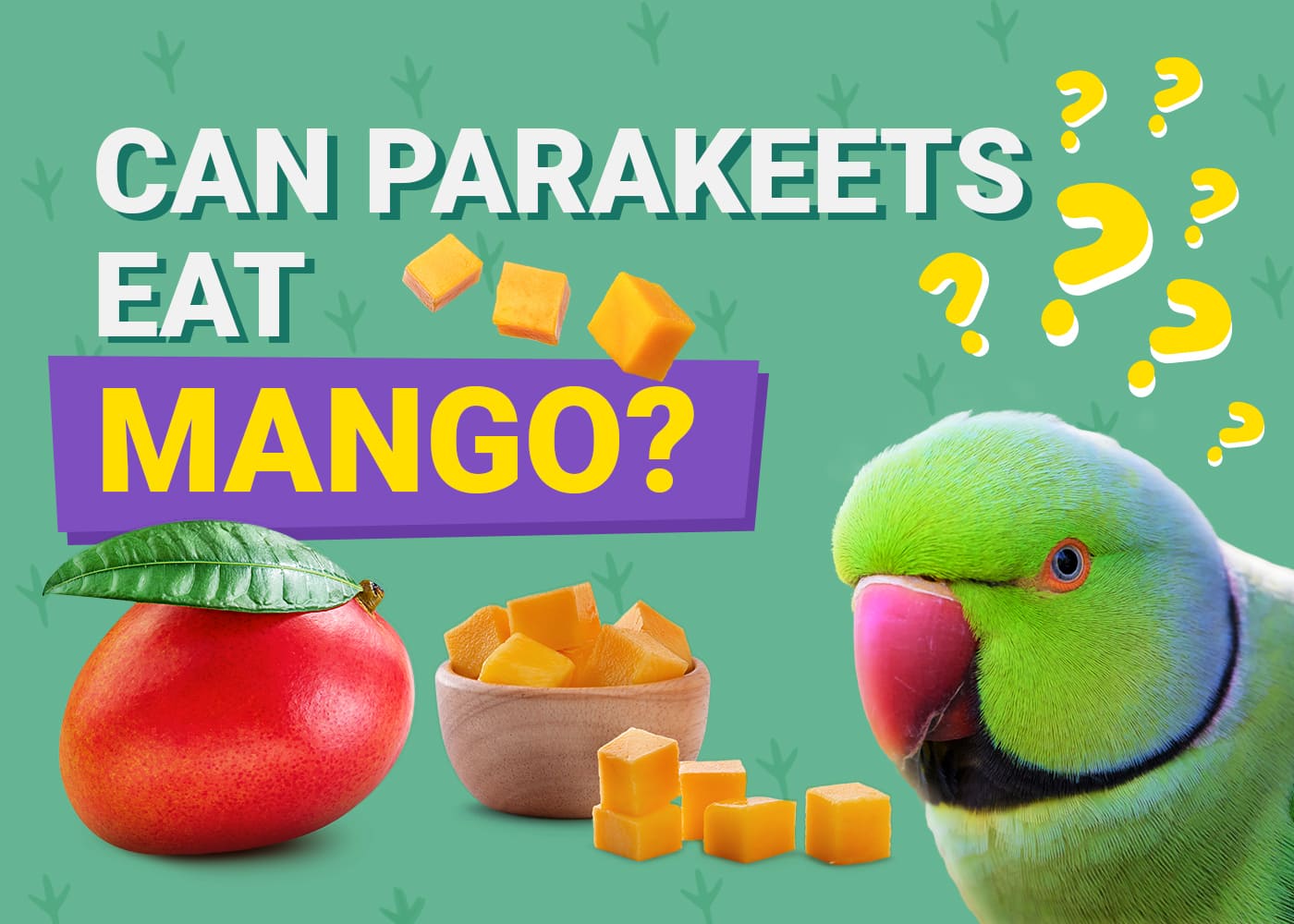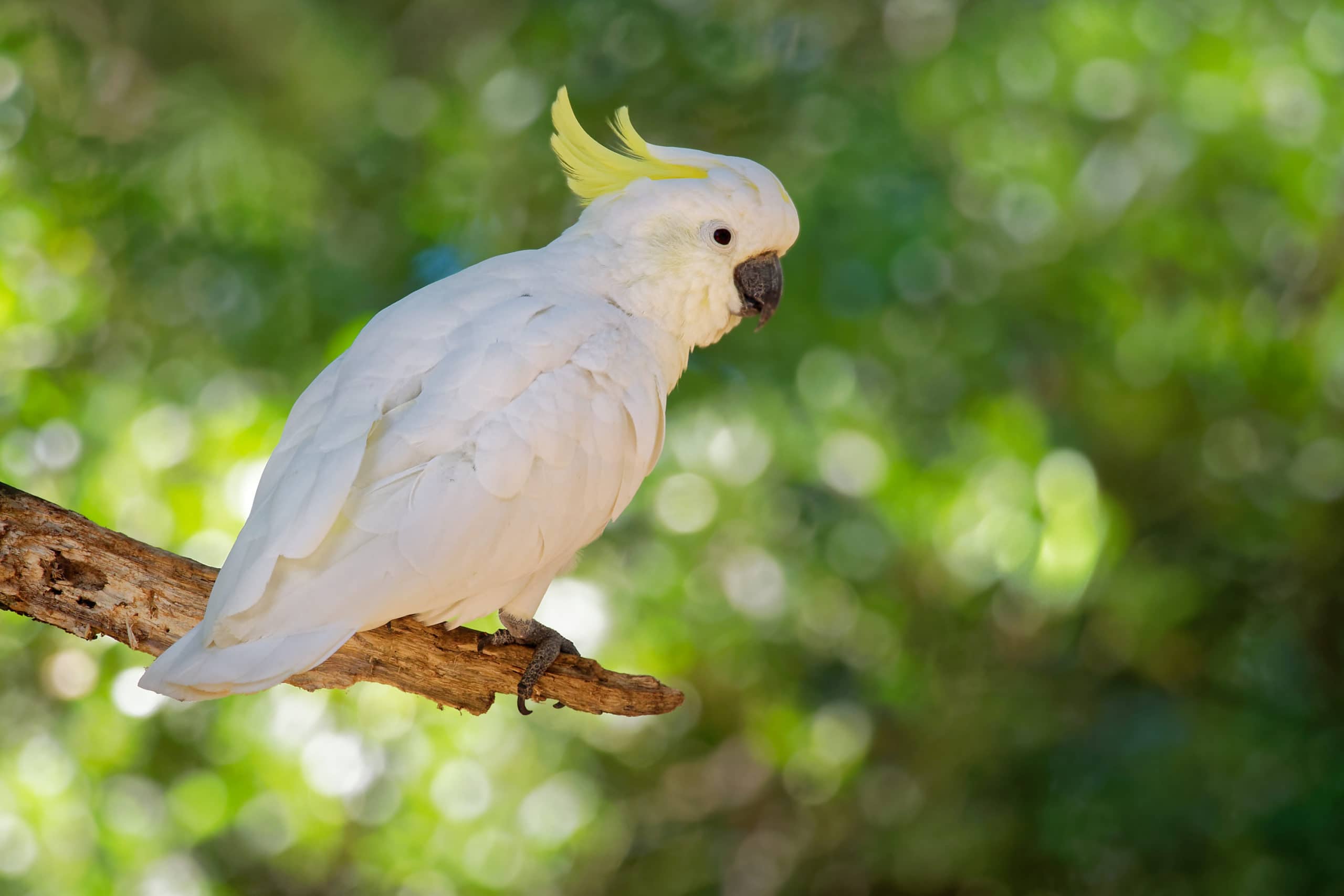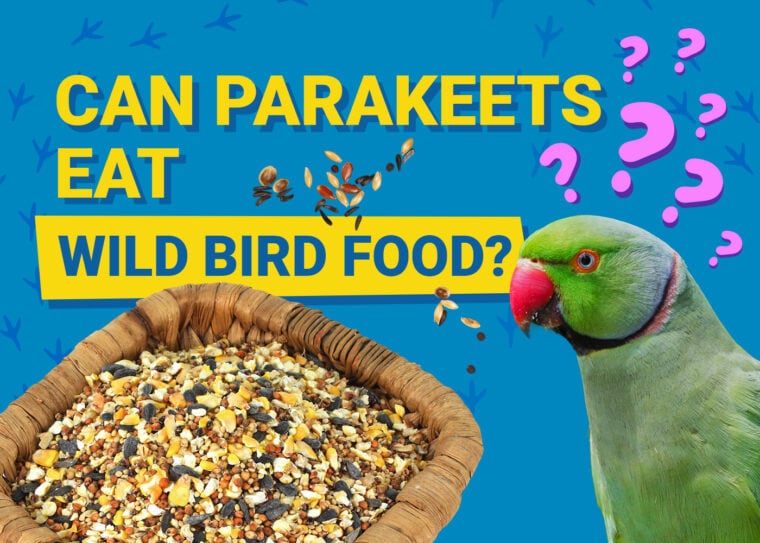
When you hear the word parakeet, you’re probably thinking about the budgerigar or budgie, as they are affectionately called. However, a parakeet isn’t a specific type of parrot, but rather a term given to several small to medium-sized species of parrots with long tail feathers. The term parakeet isn’t a taxonomical reference to any genus or family of parrots; the parrots sometimes referred to as parakeets span multiple genera. Examples of parrots generally termed as parakeets include the aforementioned budgies, cockatiels, ring-necked parrots, and nose-ringed parrots.
Depending on the exact species, parakeets can live up to 20 years, although the budgerigar, which is the most commonly kept species of parakeet pet, more commonly lives for 8 years when kept as a pet. To help ensure as long and healthy a life as possible, you should ensure that your bird gets its nutritional requirements from the food that you give it every day.
In general, a parakeet can eat wild bird food. It is non-toxic, but it should not be given as a daily food or a regular supplement to their proper diet, because it is not nutritionally balanced to meet your parakeet’s exact requirements. Read on to find out more about feeding wild bird food to your parakeet and to discover some healthy treats you can give your feathered friend.
Parakeet Diet
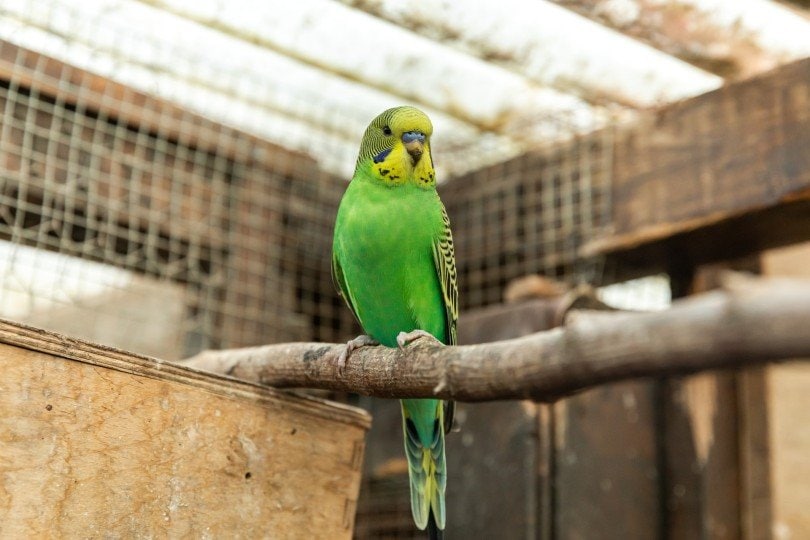
Parakeets originally come from south Asia and live in hot jungles. They are omnivores, eating the foliage, pods, and leaves of trees, as well as nuts, nectar, and some fruit and vegetables. They also eat insects and crustaceans.
As pets, parakeets are usually given pelleted food as their primary food source. These are nutritionally balanced to ensure that they provide the vitamins and minerals required by the specific species of bird.
Pellets should make up between 75% and 80% of your bird’s daily diet with the remainder being fruits and vegetables. Avoid pale vegetables because foods like iceberg lettuce are made up primarily of water and contain very little nutritional value for your bird. Do not feed avocados because they are toxic and could cause serious harm to birds. Either buy organic foods or ensure that everything is washed thoroughly before feeding to remove any chemical pesticides and other toxins that might reside on the skin.
Chop the fruit and vegetables up into small pieces and feed them in a separate bowl to the one that you feed the seeds in.
Offer a good variety of these foods and change them periodically, making especially certain that you stop feeding any that your parakeet becomes too fond of. Like a lot of companion birds, the parakeet will favor certain foods, and not only will they eat these in preference to the rest of the food in the bowl but they might start to refuse other foods in the hope of getting their favorite.
Parakeets and Wild Bird Food

Wild bird food contains a variety of seeds, nuts, and other ingredients. As such, it can seem like a good food source for any bird and especially for your parakeet. It should not contain any food that is toxic to your bird, so if it does grab a beakful and eat them, there is no reason to be concerned.
However, while it won’t directly poison your parakeet, wild bird food should be left for the wild birds because it does not contain the right nutritional balance for parakeets. Wild birds would not only eat the food that they forage from gardens, but they would naturally supplement this with other food types. But because you are your parakeet’s sole source of food, this isn’t an option.
It is also worth noting that while seeds are nutritionally beneficial for parakeets, they are also high in fat. This means that feeding too much wild bird food could lead to your parakeet putting on too much weight and becoming obese. It also means that they could leave their other food and prefer wild bird mix instead.
How to Convert Your Parakeet to a Pelleted Diet
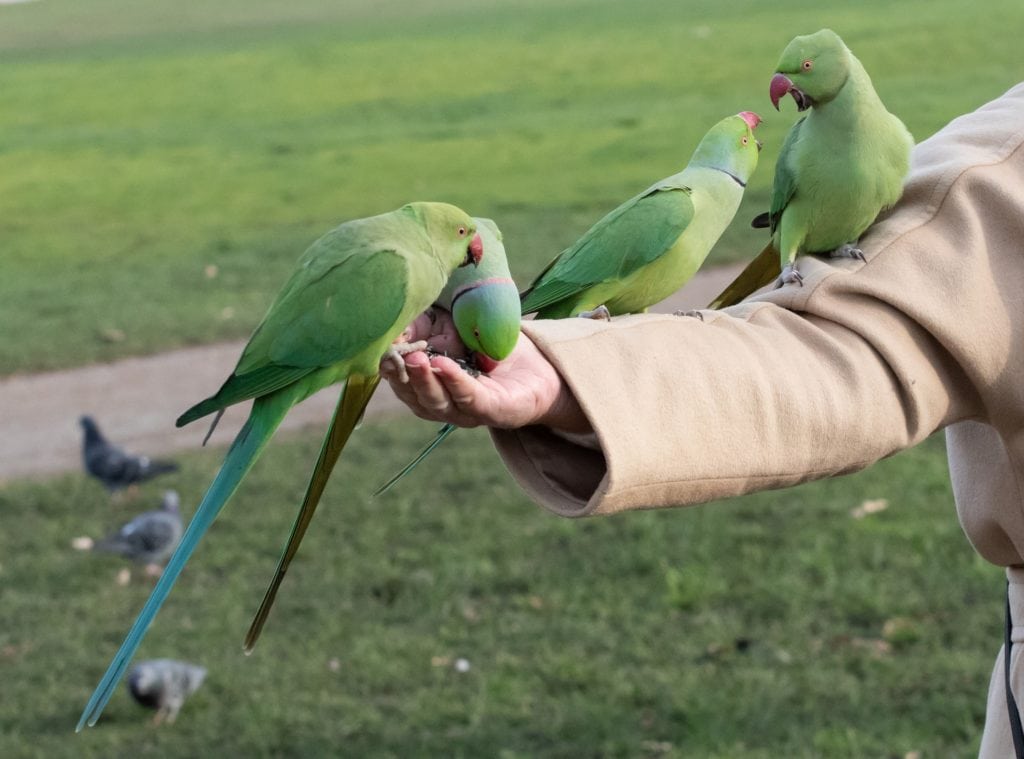
Parakeets are better on a pelleted food than on a seed diet, but if yours is already fixed on a seed diet, it can be difficult to convert. The best approach is a gradual one. Cut down on the amount of seed you feed and add pellets to your bird’s daily diet. Over time, you can reduce the seed volume and increase the pellet volume further, until you eventually wean your parakeet to a more favorable daily intake. If the bird refuses to eat pellets, you may have to speak to your veterinarian to get advice on the best approach and the ideal next step.
The 5 Healthy Parakeet Treats
Below are five foods that you can give sparingly to a parakeet. They must get a varied diet, so avoid feeding too much of any food, or giving these treats too often.
1. Millet

Millet is a type of grain grown in India and other parts of the world. It is high in protein, inexpensive, and most parakeets consider it a serious treat that rivals even sweet fruits. It is also packed with complex carbohydrates, which break down slowly and provide a long-term source of energy that will last over the day.
2. Hard-Boiled Egg

Your parakeet will get a decent amount of protein from the seeds and pellets that you feed, but you can give some extra. A hard-boiled egg is a tasty treat that is packed with protein. By ensuring it is hard-boiled, you can offer different bits of the egg for variety.
3. Cooked Corn

There are other sources of beneficial protein, including tuna packed in water and corn. Corn can be fed raw or cooked, and it is worth trying both preparation methods to determine which your parakeet prefers.
4. Broccoli
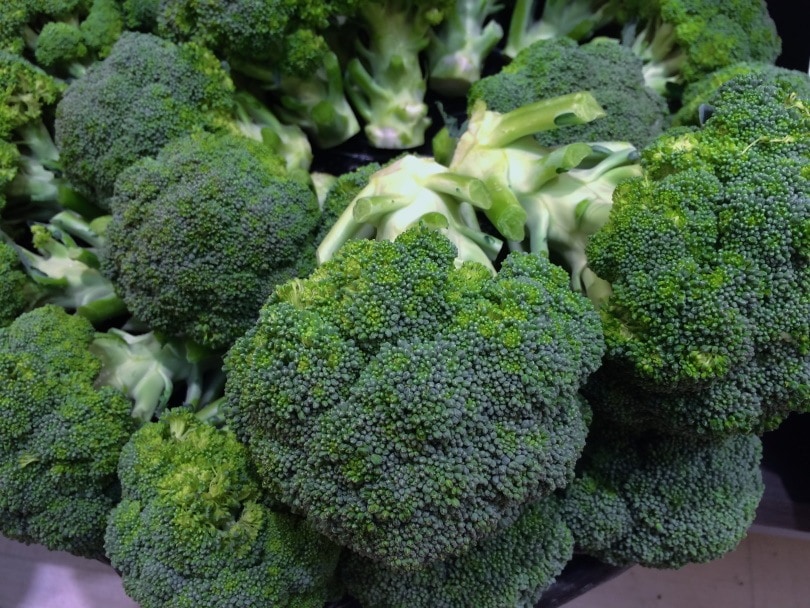
Broccoli is packed with vitamins A, B, and C, and calcium, all of which are vital to your bird’s nutritional requirements. Try feeding the florets raw or boil them gently just to soften them up a little and make them more palatable.
5. Grapes
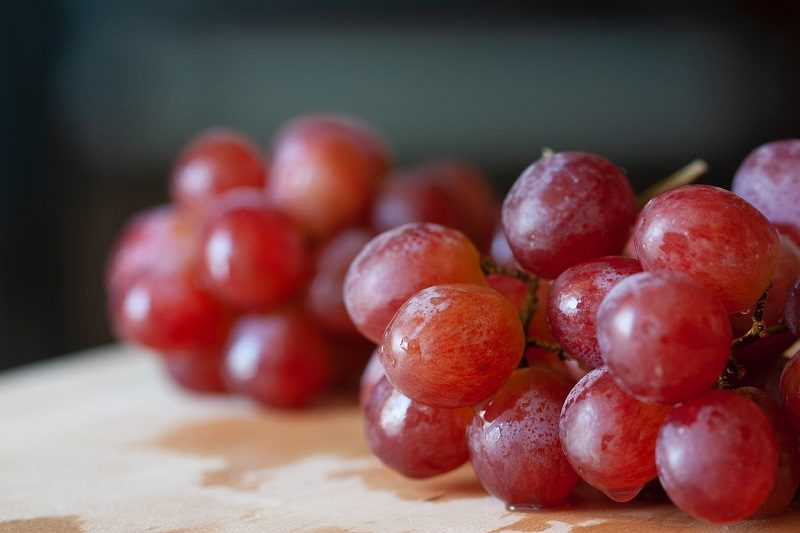
Although it should be fed sparingly, fruit is a good source of antioxidants, as well as essential vitamins and minerals. As well as orange and melon, you can slice up a few grapes and give several halves as a parakeet treat.
Can Parakeets Eat Wild Bird Food?
Parakeets can safely eat wild bird food because it should not have any toxic ingredients in it. However, the mix is not balanced to meet the parakeet’s unique dietary or nutritional requirements. This means that your feathered friend will not be getting all of the vitamins and minerals that it requires to stay fit and healthy. While there is no need to worry if yours has taken and eaten a small amount of wild bird feed, you should avoid feeding it regularly or too much of it. Similarly, you should not feed too many seeds because these can be fattening and unhealthy for a parakeet’s diet.
Related reads:
Featured Image Credit: UniqSnaps, Shutterstock


